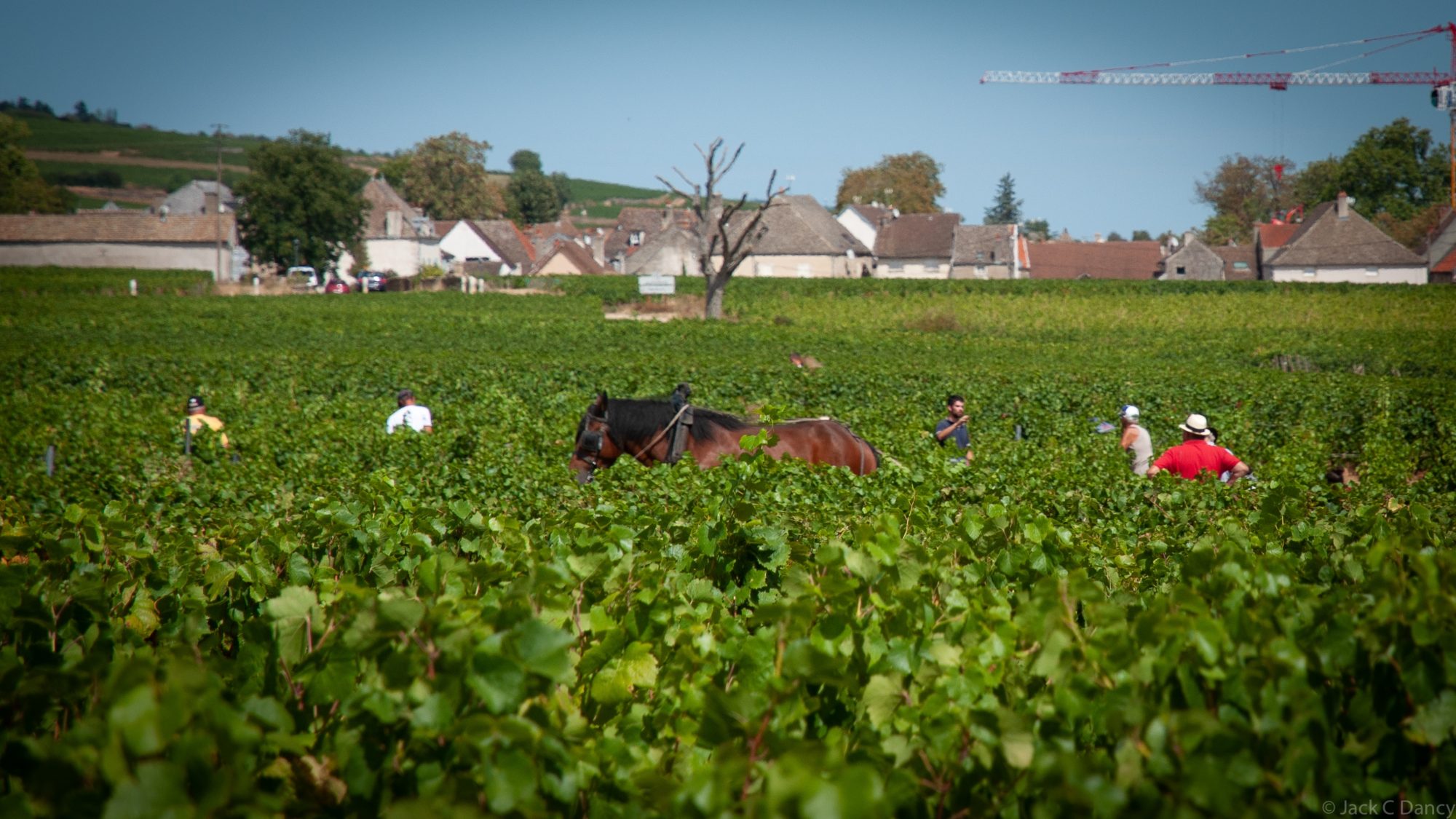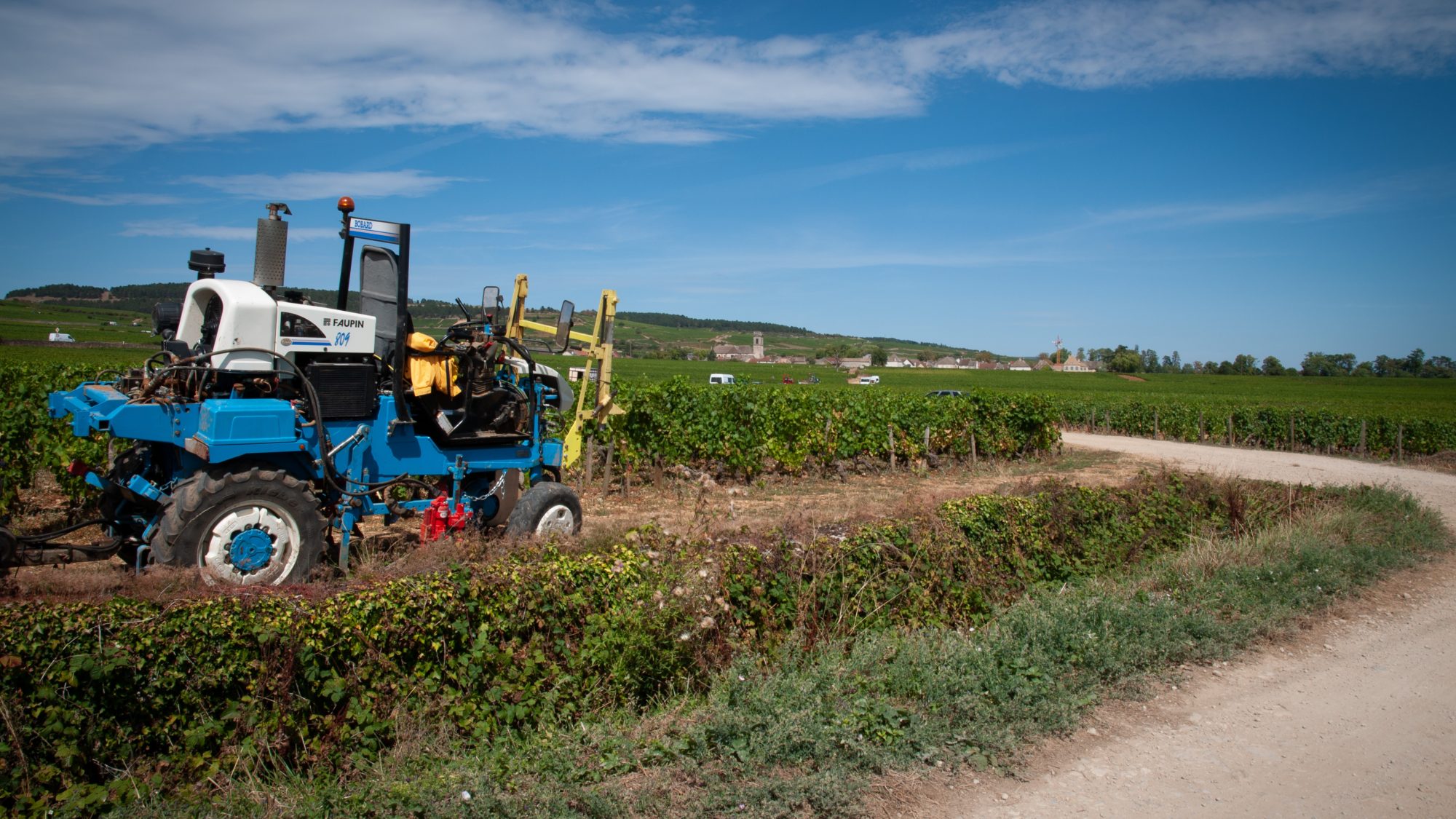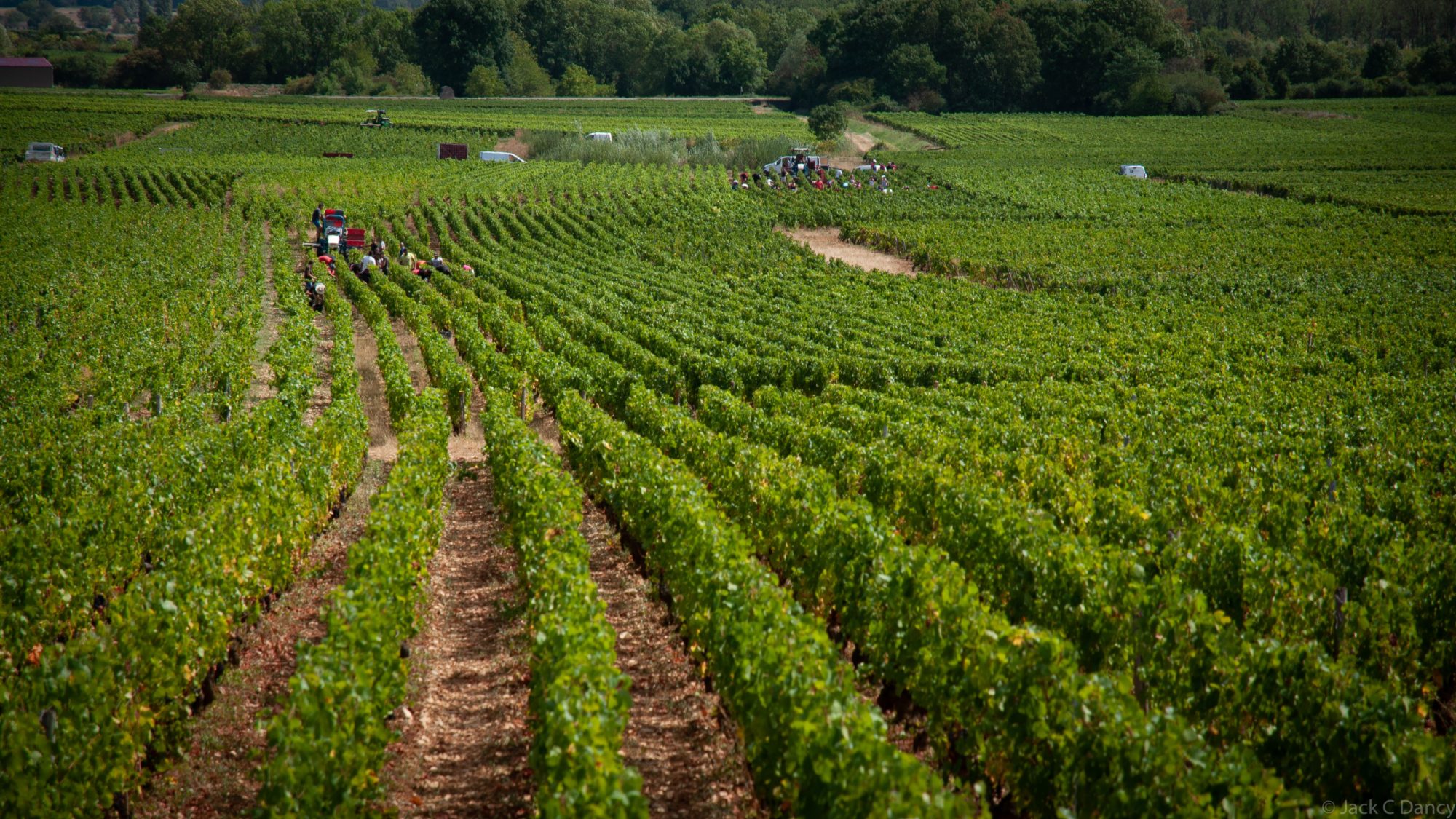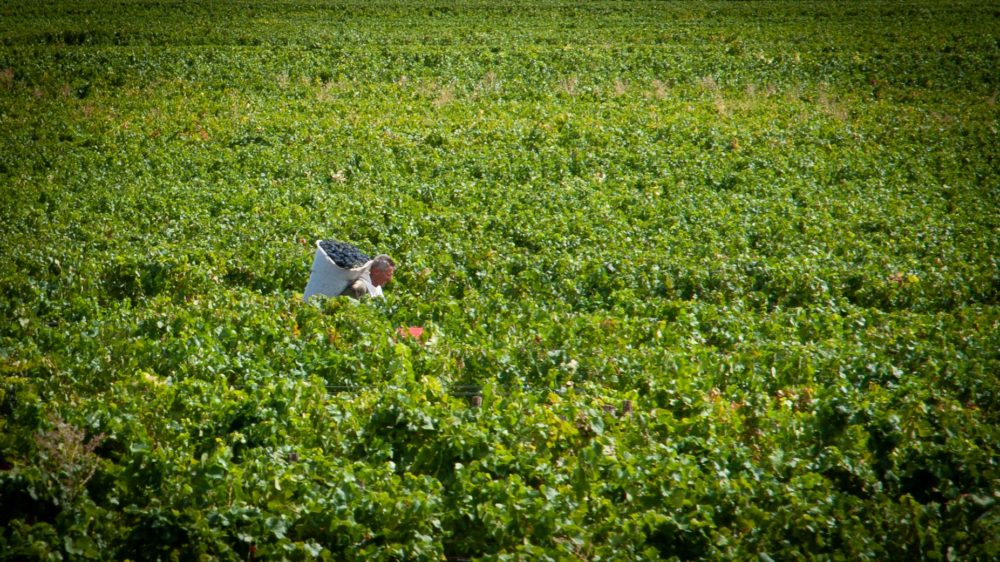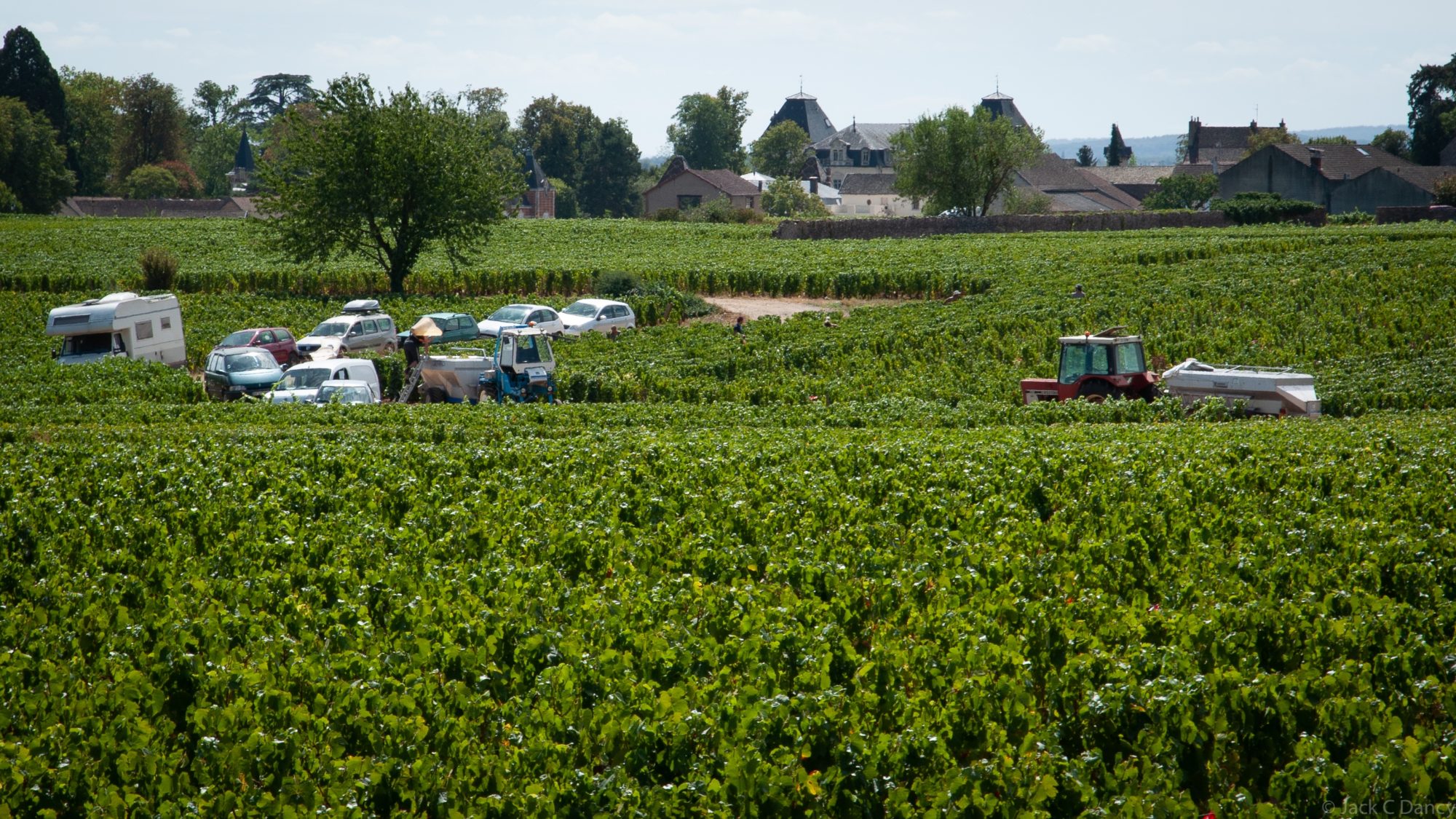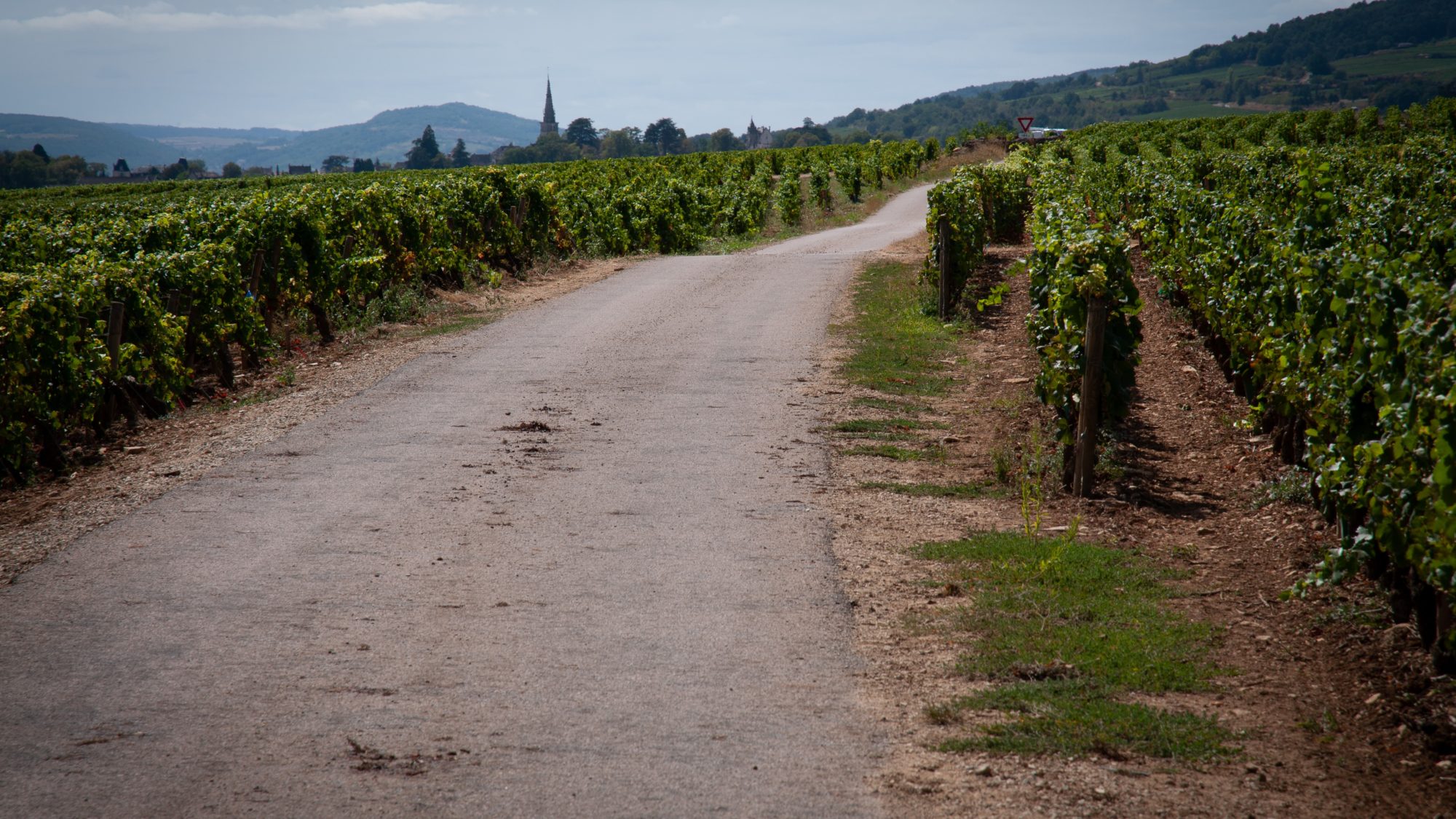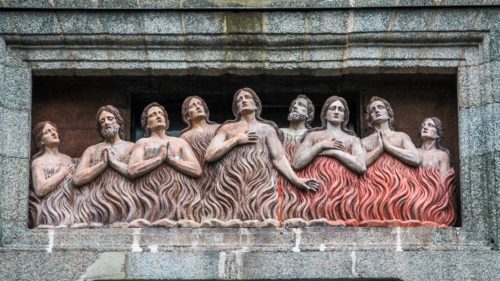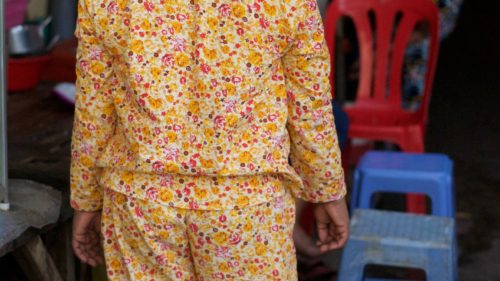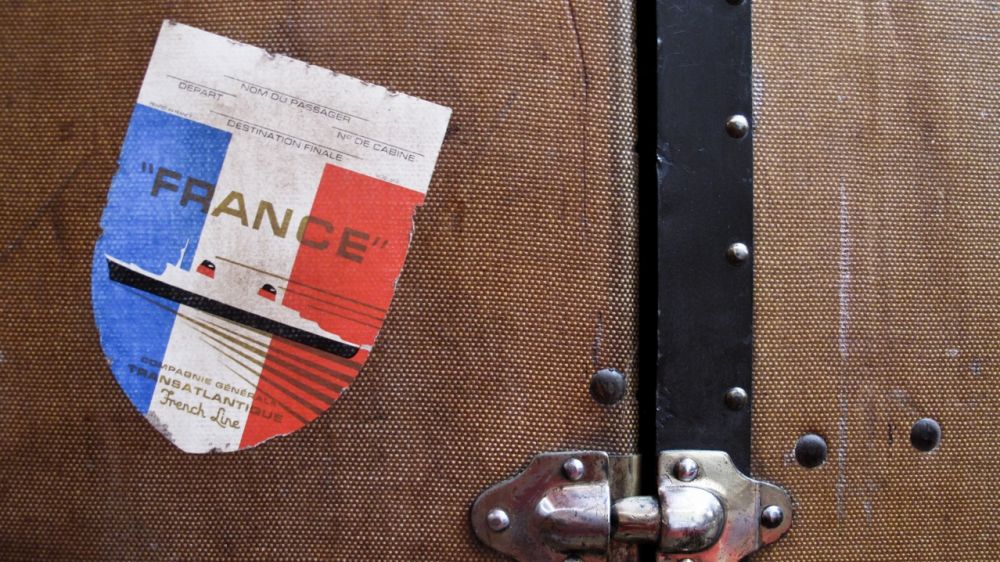Changes in Burgundy’s Wine Harvest Reflect a Bigger Picture
Look at the picture. Isn’t it lovely to see an image of such unchanging tradition? Cart horses being used to transport grapes picked by hand in Burgundy’s famous Côte de Beaune, with the picturesque village of Pommard in the background, under a beautiful August blue sky… Lovely.
But wait, hang on a second… doesn’t harvest usually begin in late September? Is that a huge construction crane looming in from the right? And …that’s odd… why does that tree have no leaves?
In fact, the horse in the picture was probably the only horse in action in the vineyards today, where white mini-vans are less picturesque but more efficient and far more prevalent, as the other photos show. I had to position myself in precisely the right spot and cut out everything that was happening to the left and right to give you this highly-edited snapshot, which is therefore in a sense utterly unreflective of reality. But it’s my job to make you want to come to Burgundy, isn’t it? White vans and construction cranes aren’t exactly helpful there.
As it happens, I don’t think that is my job. Places are complex and ever-changing, and travel companies that pretend otherwise insult your intelligence and your curiosity. If you find yourself being sold one single simple emotion (Wow! Yum! Gorgeous. Awesome!) ask yourself the question what’s being left out of the picture. And ask yourself why someone thinks you’d want an emotional diet of one single high-sucrose flavour [spoiler: it’s easier to sell].
In this case, there’s a great deal being left out of the shot. And I think the full picture is more interesting than the brochure version. The remarkable continuity of wine-making in this part of Burgundy makes it easier to see the significant changes now taking place. Reliable records for the grape harvest go back as far as 1371, and with the possible exception of the year 1556, this year’s vendange is the earliest ever recorded. So while you thought you were looking at a peaceful picture of untroubled tradition, in fact this is a photo of dramatic, tangible and accelerating climate change (with no polar bears).
And yes, that large crane overhanging the village is part of a renovation project funded by a Silicon Valley billionaire who aims to open a luxury hotel and to fast-track into rapid existence a deep-pocketed Burgundy wine-making domaine, which will then in turn espouse (and sell) tradition and excellence and slow wine-making techniques. Don’t get me wrong – the project has much to recommend it, creates jobs and distributes wealth. It does raise some questions though.
Pommard and Volnay are connected to the waste water system which runs down to Beaune. Both villages’ residents number in the low hundreds, but the system was built to accommodate populations of tens of thousands, to take into account the massive amount of water used in wine-making in the weeks during and after harvest. It’s a sticky business carting tonnes of sugary grapes around, and cleanliness is the top ingredient in quality wine-making. However, this year, with so little rain having fallen since May, the taps in the village of Monthelie run dry twice a day (so the mayor told me today); while in neighbouring Auxey-Duresses, the run-off from all that cleaning of equipment goes pretty much directly into the river.
Even in picture perfect Burgundy, therefore, you can see all the tensions and constraints of modern life butting up against tradition, requirements running down resources, and small scale localism loomed over by globalist ambition. Not to put too fine a point on it.
Either way, I bet that’s not the world that sprung to mind when you saw that horse with his traditional leather blinkers, the tiled rooftops, and the red-shirted man in the old-fashioned Panama hat. Is he taking a well-earned breather after some honest work, or is he contemplating the end of his way of life? If he’s not, he probably should be. It’s taken two generations for a millenium of European peasant tradition to disappear entirely, and it only persists in Burgundy because people are willing to pay so much for the produce. If Covid has taught us anything it’s that if we thought change was fast before, we should tighten our seatbelts.
Jack is in unusually sombre mood for a man who bikes through these vineyards to work and back every day. We even edited out a further rant about the horse. Leave the poor horse alone! Email him here if you disagree with what he’s saying.
